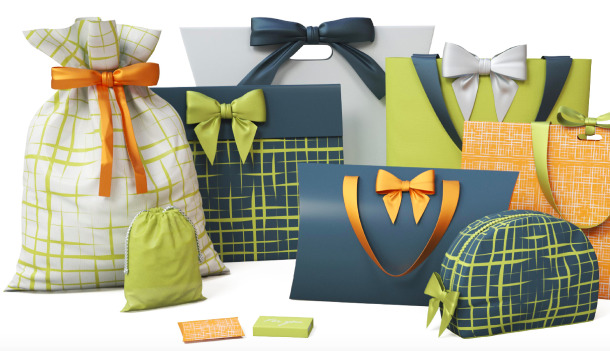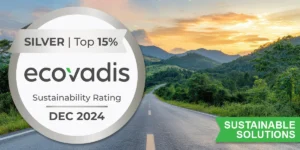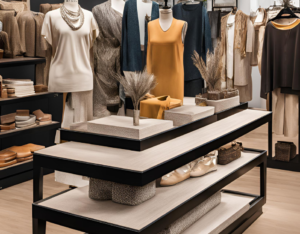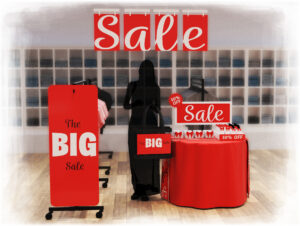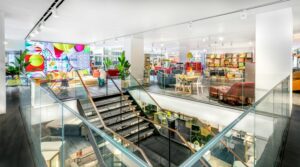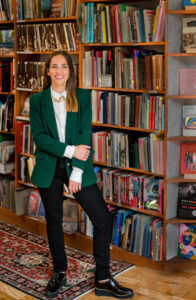Becoming more sustainable means something different to everyone and every business. And while most organizations wish they could dive into being “100% sustainable,” the more realistic course usually involves multiple steps and progression toward more sustainability.
Here are 3 Steps to Develop Your Sustainable Packaging Program
- Define Your Goals
- Choose the Right Style & Material
- Identify a Partner
What does sustainability in retail packaging look like?
Sustainable solutions in retail packaging encompass so much more than just reusable bags or recycled materials. Sustainability also involves environmental, social, and economic sustainability.
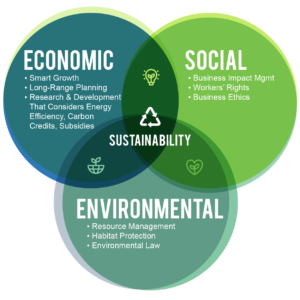
Environmental sustainability may include resource management, habitat protection, and environmental law.
Social sustainability is about identifying and managing business impacts, both positive and negative, on people. This may include taxation, workers’ rights, business ethics, and more.
Economic sustainability balances economic growth and generating profits with the impact on the environment and the people. It includes smart growth, long-range planning, research and development, and considers energy efficiency, carbon credits, and subsidies.
So taking in these aspects of sustainability, where should retailers begin when thinking about developing a more comprehensive sustainable packaging program?
1. Define Your Goals
Sustainability is a spectrum and there are many different aspects to becoming more sustainable. It can mean more eco-friendly materials, utilizing more recycled, recyclable or compostable materials, fewer emissions in production, more efficient shipping and emphasizing reusability.
With these (and more) aspects of packaging sustainability, it’s important to define specific goals to work toward. Setting a SMART Goal will ensure that your goals are realistic and will keep your team accountable. SMART goals are ones that are specific, measurable, achievable, relevant, and time-bound.
Some examples of a more sustainable packaging goal may be:
- Reduce toxic chemical use in packaging X%
- Shift to X% recycled material used
- Cut waste by X%
- Increase reusable options by X%
- Eliminate filler or switch to recyclable materials
With so many various facets, it may be a more feasible approach to focus on one at a time.
Gain buy-in from the entire team and share your vision and goals with your full retail operations team.
2. Choose the Right Material and Style
Once you’ve determined your retail brand’s sustainable packaging goal, work with a vendor to review options that work to achieve it.
Explore new avenues including: multi-size boxes, sustainable materials and filler. What percent of the material is virgin material and how much was created from recycled material?
Then consider the package’s disposal, can it be recycled? Is it biodegradable? It’s ideal if it can be used again.
Prioritize materials and packaging that will have the longest lifespan and lends themselves to the greatest reusability.
3. Focus on the Design Details
After you’ve landed on the packaging style, you can bring your retail brand to life through design. For example, a creatively designed reusable bag can become even more sustainable as customers want to reuse it over and over again.
Some retail supply companies, including Bunzl Retail Services, also offer creative design services and can handle the process turnkey. A design team can work within your material limitations and find new solutions for creativity.
Retail suppliers now offer non-toxic ink options and can still deliver inventive designs that won’t sacrifice the look or brand integrity.
4. Identify a Partner
Finding the right partner can also help to address the social and economic sustainability aspects. A trusted partner can ensure vendors and materials meet standards and that goods are reliably sourced to meet your requirements.
From the raw materials through design and production, use and reuse, and finally the collection or recycling, the goal should be to support a circular economy that keeps waste out of nature.
Bunzl Retail Service’s mission is to provide a range of options that will suit each customer’s unique goals of sustainability and stewardship. Our team is constantly researching products and materials that are less harmful to the environment.
Bunzl plc is a FTSE 100 business and has a comprehensive corporate social responsibility policy based on seven key pillars:
Business Conduct • Employees
Health & Safety • Environment
Community • Customers • Suppliers
Our strategic vendor partners uphold stringent ethical and social standards in our supply chain, while our certification to FSC and PEFC attest to our commitment to responsible sourcing.
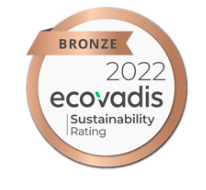
As part of Bunzl USA Holdings LLC, Keenpac received a Bronze Medal rating by EcoVadis in 2022.
Defining goals, considering design and material and finding the right partner are just a few of the preliminary steps to begin a sustainable packaging program. Contact us if you’d like personalized advice on how to maximize your retail brand’s efforts.
